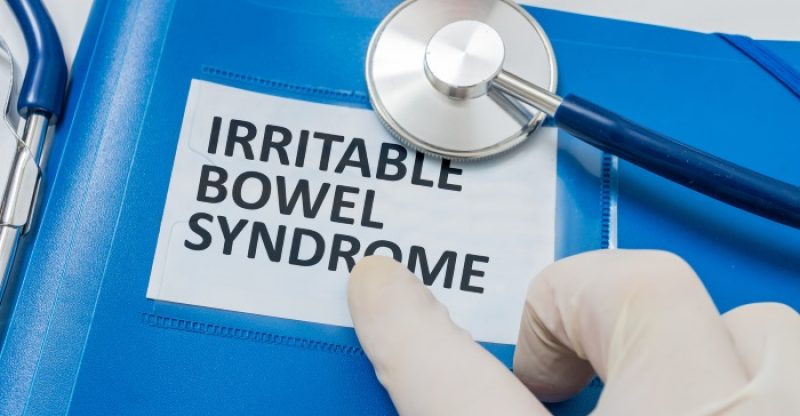IBS Symptoms, Treatments and Remedies
What is IBS?
If you have recurring digestive problems, you may have IBS or irritable bowel syndrome.
The symptoms of IBS can vary significantly from person to person, and lifestyle and stress can aggravate your problems, but understanding what causes IBS and how to treat it naturally can help you if you suffer from these uncomfortable and often inconvenient symptoms.
Our guide helps you understand everything you need to know about treating IBS naturally.
Your digestive disorder may be completely different from that of someone else, and yet you both may have IBS.
This disease has many symptoms that vary from person to person.
Knowing how to recognize the signs of IBS, including possible triggers and how to avoid them, means you may be able to treat your IBS symptoms on your own with natural remedies.
Keep reading to learn what causes IBS, and how you can prevent IBS symptoms in the future.
Understanding IBS
Irritable bowel syndrome affects over 10 percent of people in the world.
This disease is characterized by a number of digestive problems, but it does not have a single cause.
Those who are diagnosed have many symptoms together that are unexplained by other disorders or problems with your gastrointestinal (GI) tract.
Because IBS is a functional disorder, that means it is related to how your brain and digestive system work together.
Your brain can change how the muscles in your GI tract work, which can lead to problems like diarrhea and constipation.
This brain-gut connection also affects how you feel pain, and those with IBS usually experience more abdominal pain (1).
While IBS can affect anyone, certain people are at a higher risk of developing it.
Women are twice as likely to develop IBS than men (2).
Those under 50 are also more likely to develop this disorder (3).
Other risk factors for developing IBS include a family history of IBS, having a severe infection that impacts your GI tract or living with chronic stress, such as those who have survived childhood trauma or abuse.
People with IBS are also highly likely to suffer from other diseases or disorders.
The most common problems for people with IBS include (4):
- Chronic inflammatory disorders, such as fibromyalgia, chronic pain, and chronic fatigue syndrome.
- Mental health disorders such as depression, somatic symptom disorder, or anxiety.
- Other digestive problems, like gastroesophageal reflux, or dyspepsia.
There are currently no tests that can definitively diagnose IBS, so tracking your symptoms and possible triggers remains an important diagnostic tool.
Your doctor will likely not diagnose IBS until you suffer from many symptoms together, and for an extended period.
The two most significant signs that doctors will be looking for are changes in your bowel habits and recurring pain or discomfort in your abdomen.
Other symptoms can occur with IBS, so fully understanding this disease is crucial for proper treatment.
Symptoms of IBS
A diagnosis of IBS occurs after you have had persistent or recurring symptoms for at least three months, usually six months.
While you may experience occasional stomach pain or problems moving your bowels, chronic and recurring issues usually are a signal of something more serious, like IBS.
Each person with IBS will experience the disease differently, with some having severe and constant symptoms, and others experiencing only minor symptoms sporadically.
When diagnosing IBS, your doctor will want to know how long your symptoms have been occurring, as well as the frequency with which you are having symptoms.
IBS symptoms usually occur at least three days per month, with most people experiencing them more frequently.
Each case of IBS is therefore unique, which makes it harder to diagnose.
There are actually three different forms of IBS, categorized by the symptoms you most commonly experience.
Depending on which type of IBS you have, your doctor may recommend different treatments, and different natural remedies may be more successful than others for each type, as well.
The three types of IBS are based on the various changes to your bowel movements.
IBS with Constipation (IBS-C)
You will be categorized as IBS with constipation (IBS-C) if your abnormal bowel movements are more than one-fourth lumpy or hard stool and less than one-fourth water or loose stool.
IBS with Diarrhea (IBS-D)
You will be categorized as IBS with diarrhea (IBS-D) if your abnormal bowel movements are more than one-fourth watery or loose, and less than one-fourth lumpy or hard.
IBS with Mixed Bowel Habits (IBS-M)
As you can guess, this category of IBS includes both types of bowel movements.
If more than one-fourth of your abnormal movements include hardy/lumpy stool and loose/watery stool, you have mixed habits.
In addition to these changes in your bowel movements, IBS often includes other symptoms of gastrointestinal problems.
These include changes in the consistency and appearance of your stools, bloating, abdominal cramps, aches, or pains, excess gas, acid reflux, nausea, and changes in your appetite (6).
IBS symptoms often come and go, and in general, people feel relief after a few days in a row with normal bowel movements.
Because IBS is chronic, hard to predict, and impacts your quality of life, it affects people in other ways beyond gastrointestinal distress.
People with IBS are more likely also to have depression or anxiety, have trouble sleeping, become fatigued, have headaches and muscle aches, experience a reduced sexual drive, have frequent urination problems, or have body image issues (7).
Causes of IBS
The causes of IBS vary in severity between each person.
What affects you and your digestion one way may impact someone else completely differently, so understanding your risk factors and triggers will be important for pinpointing the causes of your IBS.
Diagnosing IBS involves ruling out food allergies or sensitivities, digestive disorders, and structural problems with your GI tract (8).
If all of these are ruled out and you are still experiencing symptoms, it becomes a process of trial and error to determine the most effective strategy for treating your disease.
Current understanding of IBS suggests that the underlying cause of the disease includes the abnormal functioning of the muscles of the GI tract, digestive enzymes, and nerve cells.
All of these combine to control how well you absorb nutrients and liquids, as well as regulate your bowel movements.
When these components are not working cohesively together, you can develop chronic problems.
In nearly all cases, this abnormal functioning results in low-grade inflammation of the intestines, which causes symptoms (9).
Stress can greatly contribute to IBS symptoms.
Your brain and your gut are closely linked, and when stress levels are high, your gut can become irritated and act unpredictably.
Your digestive system also produces neurotransmitters, like serotonin, which significantly impact your mood.
Since all of these systems are closely linked, when one is not working correctly, it affects the other (10).
In addition to stress, other factors can contribute to your IBS symptoms and may play a causal role.
These include:
- A family history of IBS.
- Allergies or sensitivities to certain foods. The most common culprits are FODMAP foods, like gluten and dairy.
- Chronic stress from emotional trauma or abuse.
- Changes in your circadian rhythms or sleep habits.
- Travel.
- Imbalances in hormone levels, such as during pregnancy, menopause, or menstruation.
If you think you might have IBS, talk with your doctor before trying to manage your symptoms on your own.
There are other diseases with similar symptoms that should be treated by medical professionals, so don’t skip a visit to the doctor if you are having persistent or chronic problems similar to IBS.
If you have other symptoms, in addition to the ones previously described, you may have anemia, an infection, a thyroid problem, or some other medical disorder.
Symptoms not related to IBS include:
- Blood in your stools.
- Unexplained changes in your weight.
- Fever.
- Fatigue that lasts for several months.
- Migraines.
- Changes in your menstrual cycle.
- Sweating at night.
IBS vs Inflammatory Bowel Disease?
Inflammatory bowel disease is a broader term used to describe digestive disorders with more severe and apparent symptoms than IBS.
IBD includes diseases like Crohn’s and ulcerative colitis, among others.
These are autoimmune diseases that cause gastrointestinal inflammation.
The symptoms of these diseases are usually very severe, and can even cause death if left untreated.
IBD is much rarer than IBS, and generally only affects a small portion of the population, whereas IBS impacts over ten percent of people.
Your doctor can help rule out or confirm a diagnosis of IBD, and symptoms of these diseases often begin to occur in childhood.
IBD symptoms may be similar to IBS, but are generally more severe. In addition to the symptoms listed above for IBS, IBD sufferers will also have:
- Weight loss
- Chronic diarrhea that is sometimes bloody
- Tenderness or pain in the abdomen
- Fever
Ways to Treat IBS Naturally
There are many strategies, lifestyle changes, and natural remedies you can use at home to manage your IBS symptoms, reduce flare-ups, and treat your disease naturally.
The following are our favorite IBS natural treatments.
Avoid Allergens that Cause Inflammation
Each of us reacts differently to various foods, so finding the ones that trigger your IBS symptoms may take some time.
Certain foods have been found to be more likely to cause IBS symptoms, and avoiding or cutting back on these may provide you with some relief.
Chief among this category of foods are carbohydrates known as FODMAP foods.
The acronym stands for Fermentable Oligosaccharides, Disaccharides, Monosaccharides, And Polyols.
These carbs are more difficult for your digestive system to break down and absorb properly, and they often are left in your gut, creating fermentation and leading to significant problems.
FODMAP foods can be hard to avoid, and your sensitivities may be to just a few of these foods, not all of them (11).
An elimination diet can be difficult and can take time, but determining your trigger foods may help provide lasting results, so the effort can be worth it.
Foods to consider eliminating to help your IBS symptoms include:
- Gluten, including wheat, rye, and barley products.
- Foods with added sugar.
- Refined flour.
- Conventional dairy that has been pasteurized.
- Alcohol.
- Caffeine.
- Spicy foods.
- Common food allergens like shellfish, nuts, and eggs.
- FODMAP foods high in fiber, like apples and broccoli.
Reduce or Eliminate Stress
Finding ways to reduce your stress is vital if you suffer from IBS.
Because stress can lead to inflammation and hormonal imbalances, it can increase the severity and frequency of your IBS symptoms.
If you have a history of PTSD, trauma, abuse, or mental health disorders, you are much more likely to have IBS, so understanding your risk factors and managing your stress becomes even more critical (12).
Even without chronic stress, though, everyday pressures can impact your digestive functions.
If you are unable to eliminate the sources of stress in your life, then learning how to cope with and better manage your stress will be important.
Finding activities that work well for you will be essential, and what you find relaxing may be different from others.
Popular methods of relaxation include meditation, getting regular massages, spending time in nature, participating in hobbies, exercise, yoga, regular stretching, acupuncture, and spiritual activities.
Many find essential oil aromatherapy to be relaxing, as well.
Oils like peppermint and ginger not only relax you but also promote effective digestion.
Probiotics are Helpful
In some cases, your IBS symptoms may be worse because the microflora in your GI tract is off.
Eating foods rich in probiotics or taking probiotic supplements can help restore the natural balance of microbes in your gut, which aid digestion (13).
Foods that are fermented, like yogurt, kefir, miso, and kimchi, are all naturally rich in probiotic cultures.
Depending on the type of IBS you have, and the causes or triggers of your symptoms, probiotics may or may not work for you.
If you have been dealing with symptoms for some time, it is worth trying probiotics to see if they help your symptoms, but know they are not successful for everyone.
Get Plenty of Exercises
Not only can exercise help you manage your stress, but it can also improve your digestion.
Activities like yoga, team sports, weightlifting, and aerobic activities enhance your quality of life and improve your IBS symptoms (14).
It is yet another reason to make regular exercise a priority in your life.
Try Digestive Enzymes
Like probiotics, not everyone with IBS will benefit from digestive enzymes.
But they have shown promise for some with the disorder, especially those with IBS-D.
There is little risk of taking digestive enzymes, so they are good to try if you have been unsuccessful with other treatments.
Fecal Transplants
The transplantation of microbiota from fecal matter has shown results in relieving symptoms associated with diseases like IBS and other digestive disorders.
Fecal microbiota transplantation (FMT) begins with a carefully screened donor stool, which is prepared and then transplanted into the colon.
FMT can be accomplished by several methods, including colonoscopy and capsule.
Studies of the efficacy of FMT show promise as a treatment for digestive problems (15).
It is believed that the donor stool helps restore healthy microbes to the patient in need, restoring normal digestion.
These early results are encouraging, and demonstrate the need for future research on this treatment.
Supplements May Help
Several natural supplements can also assist with relieving IBS symptoms and restoring healthy digestion.
An l-glutamine powder can help reduce diarrhea and is effective for people with IBS-D and others with the leaky gut syndrome.
Take five grams of powder twice a day for best results.
Aloe vera juice is a natural laxative that can help relieve constipation for those with IBS-C.
Drink one-half cup three times a day.
To lower inflammation and reduce overall symptoms you can also try:
- Omega-3 fatty acids, like fish oil or primrose. Take 1,000 milligrams per day.
- Slippery elm and licorice root relieve inflammation in the intestinal tract.
- Adaptogenic herbs, like holy basil, ginseng, and milk thistle can lower stress and balance hormone levels.
How Do I Know if I Have IBS?
Because there are no underlying structural problems or specific pathogens that cause IBS, it is different than other digestive disorders.
This makes IBS challenging to diagnose.
Because no diagnostic test or imaging can reveal IBS definitively, the diagnosis is sometimes made when other issues or causes have been ruled out, which takes time.
When you are suffering from persistent symptoms that are disruptive to your life, this can be frustrating and stressful.
When you start noticing symptoms, one of the best steps you can take is to document your symptoms as well as possible triggers.
Your doctor is likely to ask you many questions about patterns and habits, so keeping a journal of your bathroom problems, diet, and lifestyle events can be extremely helpful when talking with your physician.
Things you can document that will help your doctor include:
- How often you go to the bathroom.
- Whether going to the bathroom relieves pain or other symptoms.
- Your stress levels as they correlate to the increase or decrease of your symptoms.
- If your symptoms worsen after eating certain foods.
- Any changes in consistency or appearance of your stools after eating certain foods.
- If you have or have ever had food allergies or sensitivities.
- How much and with what intensity you exercise.
Your doctor will also likely ask about your medical history and that of your family members.
Your physician will probably perform an exam, and may even run tests to rule out other digestive disorders.
After diagnosis, treatment involves trial and error to determine which triggers to eliminate, how to relieve symptoms, and ways to change your lifestyle to decrease stress.
Living with IBS can be difficult, which is why understanding the disease and its many-faceted causes are so critical.
Precautions
Because IBS affects over ten percent of the population, it is important to understand how to control its symptoms. Women and those under 50 are more likely to suffer from IBS.
In fact, women are twice as likely as men to have the disorder.
Tracking your symptoms and documenting your diet will be very important in diagnosing IBS.
While each person has different degrees of severity and frequency of symptoms, common IBS symptoms are abdominal pain, changes in normal bowel movements that result in constipation and/or diarrhea, bloating, excess gas, and loss of appetite.
In addition, IBS can cause other symptoms due to the nature of living with a chronic disease.
These symptoms include depression, anxiety, muscle aches, lowered libido, headaches, fatigue, and trouble sleeping.
IBS has symptoms similar to inflammatory bowel disease, but it is not the same disorder.
IBD is much rarer and causes symptoms that are more severe.
IBD includes diseases like Crohn’s and ulcerative colitis, which, if left untreated, can be fatal.
While IBD does not have a single cause, there are risk factors that contribute to your chances of developing the disease.
These include a past digestive infection, chronic stress, and a family history.
If you have changes in your sleep patterns or hormonal imbalances, you also have an increased risk of developing IBS.
Treating IBS with natural methods can help alleviate symptoms and return digestive processes to more normal functioning.
Typical natural treatments include eliminating trigger foods from the diet, reducing your stress, exercising, eating probiotics, taking supplements, and fecal microbiota transplantation.
Living with IBS can cause mental health issues, so be sure you are treating your disorder and getting the help you need.
Know your risks, manage your diet, document your symptoms, and be patient, as treating this disease comes with much trial and error.
While living with IBS can be bothersome, identifying and eliminating your triggers and sources of stress can help tremendously, and reduce symptoms significantly.
FDA Compliance
The information on this website has not been evaluated by the Food & Drug Administration or any other medical body. We do not aim to diagnose, treat, cure or prevent any illness or disease. Information is shared for educational purposes only. You must consult your doctor before acting on any content on this website, especially if you are pregnant, nursing, taking medication, or have a medical condition.
HOW WOULD YOU RATE THIS ARTICLE?






